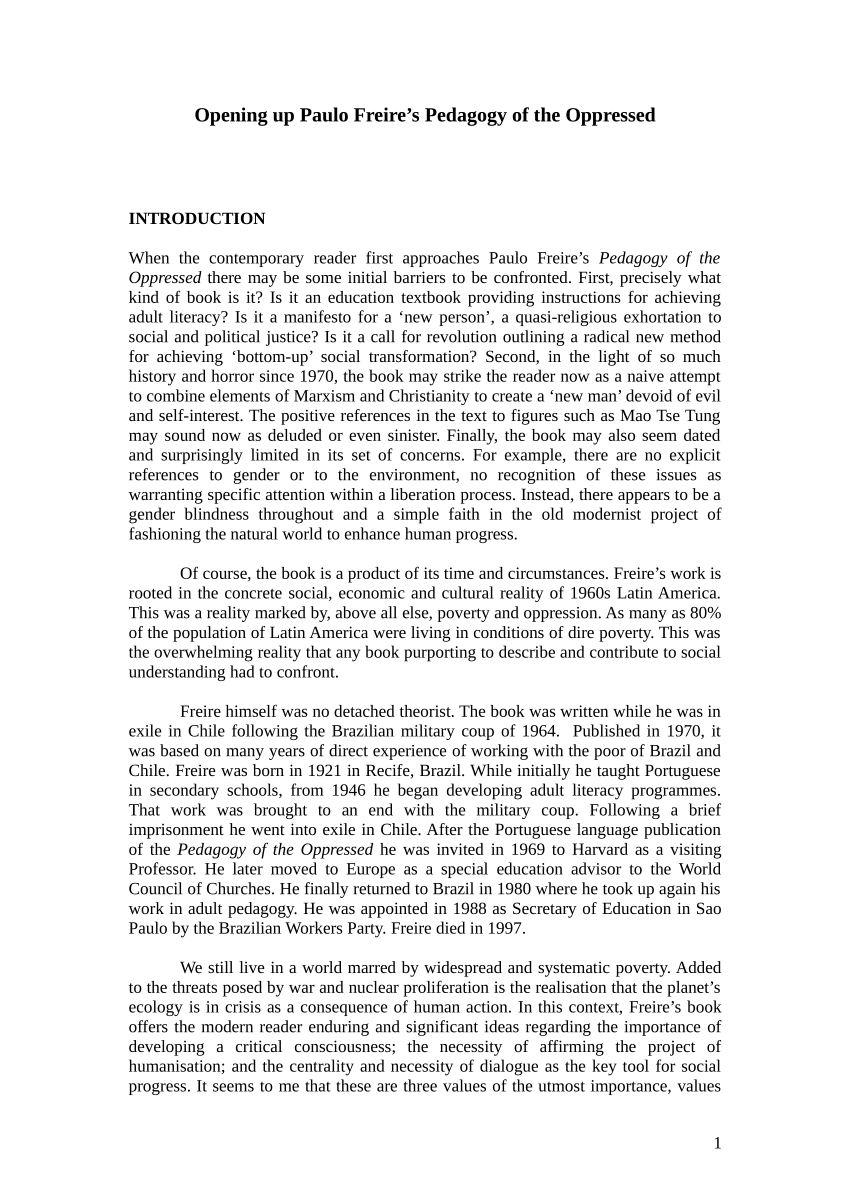Paulo Freire Pedagogy Of The Oppressed

In the realm of educational philosophy, few works have resonated as profoundly as Paulo Freire’s “Pedagogy of the Oppressed.” Published in 1968, this seminal text revolutionized the discourse surrounding education, empowerment, and social justice. Freire, a Brazilian educator and philosopher, crafted a pedagogical framework that challenged traditional notions of teaching and learning, advocating for a liberatory praxis that aimed to emancipate both the oppressed and the oppressors from systems of domination.
At the heart of Freire’s pedagogy lies the concept of conscientization, or critical consciousness. He posited that traditional education often perpetuates a banking model, where knowledge is deposited into passive learners, reinforcing oppressive structures. In contrast, Freire advocated for a dialogical approach where educators and learners engage in a mutual process of reflection and action to critically examine and transform their social reality.
Central to Freire’s philosophy is the recognition that education is inherently political. He argued that education should not be neutral but rather serve as a tool for liberation. By problematizing the socio-political context and encouraging learners to question power dynamics, Freire aimed to cultivate a critical consciousness that empowers individuals to become agents of change in their communities.
One of the key concepts in “Pedagogy of the Oppressed” is praxis, the fusion of reflection and action. Freire emphasized the importance of praxis in the learning process, asserting that true understanding and transformation emerge from engaging with the world in a meaningful way. Through praxis, individuals move beyond passive acceptance of reality to become active participants in shaping it.
Furthermore, Freire highlighted the dichotomy between oppressors and the oppressed, stressing the need for solidarity and collective action. He argued that liberation is not achieved through the oppression of others but rather through mutual humanization. Thus, he called for a pedagogy of solidarity that fosters empathy, dialogue, and collaboration across social divides.
Freire’s pedagogy has had a profound impact on education worldwide, inspiring educators, activists, and policymakers to rethink traditional approaches to teaching and learning. His emphasis on participatory, dialogical education has influenced numerous educational movements, including critical pedagogy, feminist pedagogy, and multicultural education.
However, Freire’s ideas have also faced criticism, particularly regarding their applicability in diverse cultural contexts and their potential to overlook the complexities of power relations. Some argue that his emphasis on dialogue and consensus-building may not always be feasible in situations of extreme oppression or conflict.
Conclusion
Nevertheless, the enduring relevance of Freire’s pedagogy lies in its call to challenge the status quo, to question dominant narratives, and to work towards a more just and equitable society. By centering education as a tool for liberation, Freire’s work continues to inspire educators and activists to strive for social change and empower the oppressed to become agents of their own liberation. As we navigate the complexities of the 21st century, Freire’s vision of education as a force for liberation remains as vital and transformative as ever.